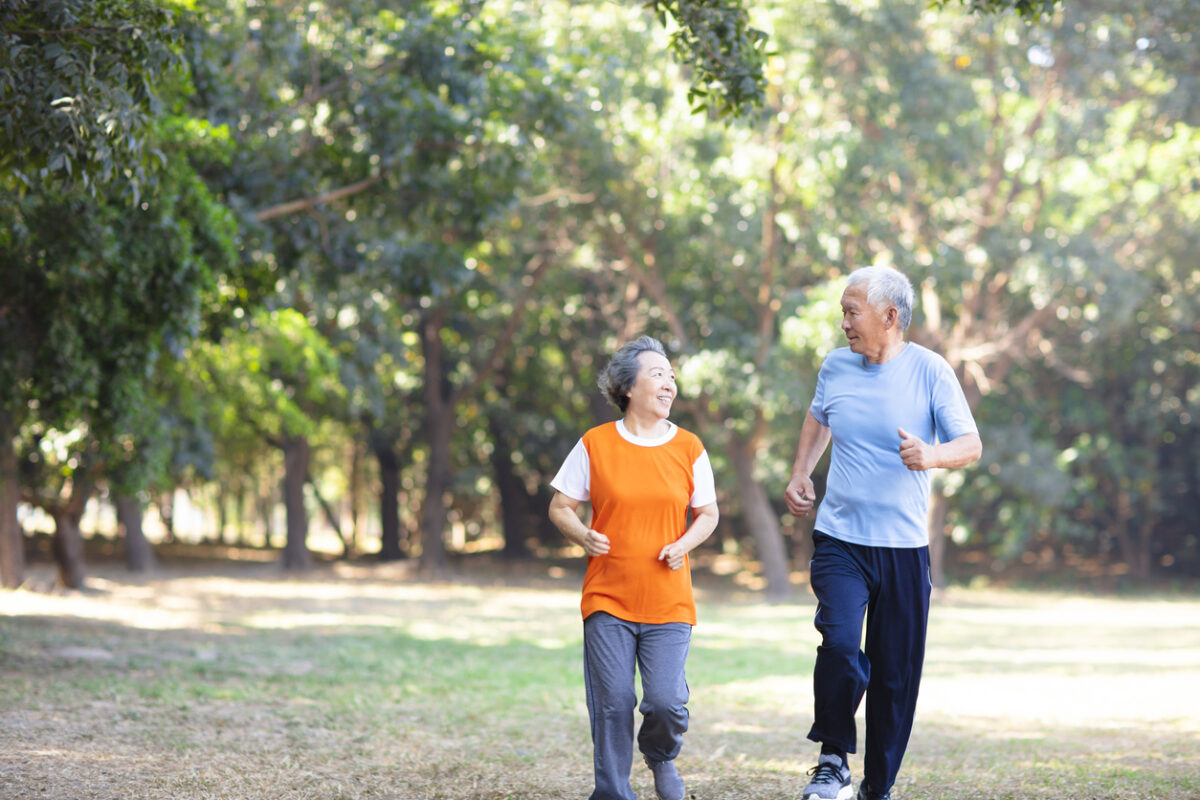Combatting Cognitive Decline: Strategies for Healthy Aging
As we age, our cognitive abilities naturally change. However, research deep into the cognitive decline and aging has revealed various strategies that can help maintain mental acuity. These include engaging in regular physical exercise, staying socially connected, and challenging the brain with new learning experiences.
The Science of Cognitive Decline and Aging: How Our Minds Change with Time
Cognitive aging refers to the natural changes that occur in our mental processes as we grow older. This topic has fascinated scientists for years, leading to a deeper understanding of how our minds change with time. Research has shown that various factors contribute to cognitive aging, including genetics, lifestyle choices, and environmental factors.
One key aspect of cognitive aging is the decline in processing speed. As we age, our brains take longer to process and analyze information, which can affect our ability to think quickly and react to new situations. Another common change is a decrease in working memory capacity, making it harder to hold and manipulate information in our minds.

However, not all aspects of cognition decline with age. In fact, some cognitive abilities, such as vocabulary and accumulated knowledge, tend to improve with time and experience. This suggests that cognitive aging is not a simple decline, but a complex combination of various changes in different cognitive domains.
Scientists are also interested in identifying strategies to maintain and enhance cognitive abilities as we age. Physical exercise, mental stimulation, and a healthy lifestyle have all been shown to have positive effects on cognitive health. Additionally, novel interventions like cognitive training programs and brain stimulation techniques are being explored to boost cognitive functions.
Overall, the science of cognitive aging provides valuable insights into the changes that occur in our minds as we grow older. By understanding these processes, researchers hope to develop strategies to promote healthy cognitive aging and improve quality of life for older individuals.
Preventing Cognitive Decline: Tips to Maintain Mental Sharpness
As we age, our brain’s cognitive abilities can begin to wane. But fear not! Engaging in mentally stimulating activities, eating brain-healthy foods, and regular exercise can bolster mental acuity. Let’s explore some practical strategies to keep your mind sharp.
Exploring the Link Between Aging and Cognitive Function Loss
While it is true that aging can affect cognitive abilities such as memory, attention, and processing speed, it is important to understand that not all older adults will experience the same degree of decline, and cognitive function loss does not automatically lead to dementia or other serious cognitive disorders.
Researchers have been exploring the link between aging and cognitive function loss to better understand the factors that contribute to cognitive decline in older adults. They have found that several factors play a role in this decline, including genetic predisposition, lifestyle choices, and health conditions such as cardiovascular disease, diabetes, and high blood pressure.

It is also worth noting that cognitive decline is not inevitable and can be influenced by various factors such as engagement in intellectually stimulating activities, a healthy diet, regular exercise, and social interaction.
Further research is needed to fully understand the complexities of the aging process and its impact on cognitive function. By gaining a better understanding of this link, healthcare professionals can develop strategies, interventions, and treatments to promote cognitive health in older adults and potentially delay the onset of cognitive decline.
Lifestyle Choices to Mitigate the Risk of Cognitive Decline as We Age
There are several lifestyle choices that can help mitigate the risk of cognitive decline as we age.
Engaging in regular physical exercise, such as aerobic activities or strength training, has been shown to improve brain health and reduce the risk of cognitive decline.
Eating a balanced diet that is rich in fruits, vegetables, whole grains, lean proteins, and healthy fats can also support brain health.
Staying mentally active through activities such as reading, puzzles, or learning new skills can help maintain cognitive function.
Getting enough quality sleep is essential for brain health, as sleep deprivation has been linked to cognitive impairment.
Managing stress levels through techniques like mindfulness or relaxation exercises can also support brain health.
Finally, maintaining social connections and staying socially engaged can contribute to overall brain well-being.
By incorporating these lifestyle choices into our daily lives, we can potentially reduce the risk of cognitive decline as we age.
Nutrition’s Role in Preventing Cognitive Decline During Aging
Proper nutrition plays a crucial role in preventing cognitive decline during aging. Studies have shown that certain nutrients, such as omega-3 fatty acids, antioxidants, and vitamins, can help maintain brain health and function.
Omega-3 fatty acids, found in fatty fish like salmon, have been associated with improved memory and cognition.
Antioxidants from fruits and vegetables protect brain cells from damage caused by free radicals.
Furthermore, vitamins like B12 and folate support the production of neurotransmitters essential for cognitive processes.
A balanced diet that includes a variety of nutrient-rich foods is essential for optimal brain health. Alongside nutrition, maintaining an active lifestyle and engaging in cognitive activities can also contribute to healthy aging.
Cognitive Decline and Aging: Myths vs. Facts
Age-related cognitive decline is a natural part of the aging process, but there are many myths and misconceptions surrounding it. Here are some facts to debunk those myths:
1. Myth: Aging always leads to severe cognitive decline.
Fact: While cognitive abilities may decline with age, not everyone experiences severe decline or develops dementia. Many older adults maintain good cognitive function throughout their lives.
2. Myth: There’s nothing you can do to prevent cognitive decline.
Fact: Healthy lifestyle choices can help reduce the risk of cognitive decline. Regular exercise, a balanced diet, social engagement, and mentally stimulating activities are all beneficial for maintaining cognitive health.
3. Myth: Memory loss is an inevitable part of aging.
Fact: While mild memory impairment is common in old age, significant memory loss is not a normal part of aging. Dementia, including conditions like Alzheimer’s disease, is not a natural consequence of getting older.
4. Myth: Cognitive decline cannot be improved or reversed.
Fact: Although cognitive decline cannot be completely reversed, research suggests that mental stimulation, cognitive training, and certain medications may help slow down the progression of decline and improve cognitive abilities in some cases.
5. Myth: Only older people are affected by cognitive decline.
Fact: While aging is a risk factor for cognitive decline, it can also occur in younger individuals due to various factors such as genetics, medical conditions, and lifestyle choices.
It’s important to separate myths from facts regarding age-related cognitive decline. Understanding the realities can help individuals better manage their cognitive health as they age.
Innovations in Delaying Cognitive Decline by Aging
There have been several innovations aimed at delaying the cognitive decline and preserving cognitive health in older adults.
One such innovation is cognitive training. These programs involve engaging participants in mental exercises specifically designed to improve cognitive abilities such as memory, attention, and problem-solving skills. Studies have shown that regular cognitive training can lead to significant improvements in cognitive function and may even help prevent or delay the onset of age-related cognitive decline.
Another innovation is the use of brain stimulation techniques such as transcranial magnetic stimulation (TMS) and transcranial direct current stimulation (tDCS). These non-invasive techniques involve applying electromagnetic or electrical currents to specific areas of the brain to modulate neuronal activity. Research has suggested that these methods may enhance cognitive performance and potentially slow down age-related cognitive decline.
Additionally, emerging research has focused on the use of lifestyle interventions to preserve cognitive health in older adults. This includes promoting a healthy diet, regular exercise, social engagement, and maintaining an active and intellectually stimulating lifestyle. These lifestyle interventions have been shown to have a positive impact on cognitive function and may help delay age-related cognitive decline.
In conclusion, innovations in delaying age-associated cognitive decline include cognitive training programs, brain stimulation techniques, and lifestyle interventions. These interventions hold promise for preserving cognitive health and enhancing the quality of life in older adults.





